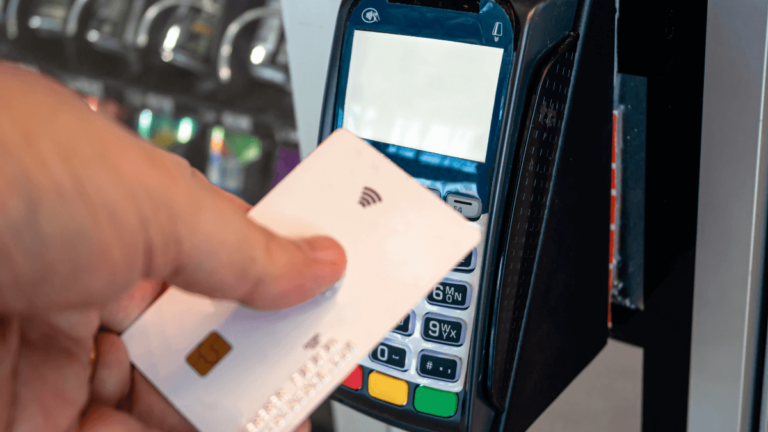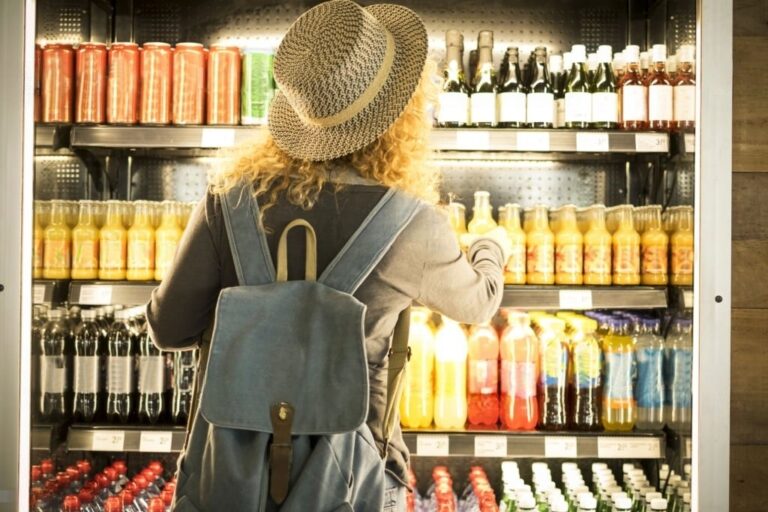7 Reasons Why Should Vending Machines Be Allowed in Schools
Students spend an average of six hours per day at school, with fewer hours in lower grades and more hours in higher grades.
Unfortunately, one in five children is currently struggling with hunger in the US because families aren’t able to provide enough food.
So, can vending machines solve this problem? Why should vending machines be allowed in schools?
Yes, Vending machines should be available in school and the food options shouldn’t be just candy and sodas, unlike how they used to be in the past. Today, a vending machine can be filled with healthier food options, encouraging kids to pick healthier snacks to stay focused on their schoolwork.
Vending machines can help students improve their daily nutrition, but this should be done under the supervision of the school. Keep on reading to learn more about this topic.
RELATED READ: Can You Use PayPal at Vending Machine? Step-by-Step Guide
Why Should Vending Machines Be Allowed in Schools?
There’s always been a debate about whether vending machines should be allowed in schools or not.
Parents, teachers, consultants, and administrators worry that vending machines can facilitate access to unhealthy snacks, especially since more than 16% of school students are overweight and more than 15% suffer from obesity.
However, vending machines should be allowed in schools for several reasons.
- With the right setup and preparation, vending machines can encourage healthy snacking, dispensing fruit, milk, yogurt, and nuts to comply with the FDA’s school dietary regulations. This will help students develop healthy snacking habits that they can stick to throughout their lives.
- Vending machines can represent an option for those who suffer from food allergies, have dietary restrictions, or don’t like specific types of food. These children are usually left out during lunch hours because they can’t find something that suits them, but vending machines will offer them various options to choose from.
- Vending machines provide nutritious food options in low-income areas that are classified as food deserts, where supermarkets are located far away, and going to them can cost the family a lot of money. Students can grab healthy snacks and take them home. Unfortunately, about 23.5 people live in these areas.
- Students can benefit from gaining access to healthy snacks that allow them to stay more focused on their schoolwork. During breaks, students will be able to conquer their hunger and enjoy more concentration throughout the school day.
- Parents who struggle with controlling what their kids eat when they’re trying to manage their weight or restrict their consumption of junk food will feel more reassured when they know that they have healthier snacks to choose from.
- In addition to students, vending machines allow teachers, administrators, therapists, and maintenance staff to gain access to nutritious and healthy snacks throughout their workday.
- Vending machines can also generate extra income for schools. This extra cash can be used for maintenance, organizing field trips, and securing supplies.
Are All Vending Machines Suitable for Schools?
Vending machines are acceptable in schools only if they provide access to healthy snacks. But if they’re packed with chips, candy, and sodas, they’ll actually harm kids at school.
Unhealthy eating is the main culprit behind several issues that kids suffer from. Diabetes, cardiovascular diseases, and joint problems are all related to gaining weight, and overweight children are likely to suffer mentally and emotionally because of bullying.
This is why the authorities will recommend setting up a vending machine in a school, only if it can be filled with healthy food options, limiting kids’ access to junk and high-calorie food.
Schools in one district will most likely have a contract with a single vending machine vendor who provides machines, fills them periodically, and manages their maintenance. This vendor is required by law to restrict the food options to specific options, limiting kids’ access to unhealthy snacks during the school day.
However, this is not always the case. In some cases, the school might set up its vending machine individually. Nevertheless, this might not be accessible to the staff due to the maintenance fees.
What Types of Snacks Should Be in School Vending Machines?
The purpose of setting up vending machines is to make healthy snacking more accessible to school students. The list of snacks can be determined by a health care provider, school administration, teachers, or board of directors.
The most important thing is to make sure that the food items comply with the federal guidelines, and the snacks should have transparent labeling listing all the ingredients. Moreover, those who suffer from food allergies or dietary restrictions should be taken into consideration.
Traditional vending machines are filled with crackers, chips, cupcakes, biscuits, chocolate bars, candy bars, pastries, and sodas. However, these snacks aren’t suitable for school students.
Here are some healthy snacks that can be considered instead.
- Still and carbonated water
- Real fruit juice
- Milk
- Alternative types of plant-based milk
- Dairy and non-dairy smoothies
- Healthy energy drinks
- Sugar-free tea and coffee
- Mixed nuts and seeds
- Sugar-free granola bars
- Dried fruits
- Popcorn
- Low-sodium crackers and pretzels
- Jerky and other types of dried meat
- Canned soup
- Fresh fruit and vegetables
What is the Percentage of Vending Machines in Schools?
There is no accurate data about the number of schools that already have vending machines on their premises. But some records show that almost 14% of elementary schools have vending machines set up in the hallways.
The number increases to 90% in middle schools and 98% in high schools because older students are less likely to bring food from home.
They also tend to spend more hours at school, so they desperately need access to healthy food options.
Summary
Vending machines should be allowed in schools because they provide students with a variety of healthy snacks throughout the school day. These healthy snacks can help those who are struggling with being overweight or unable to eat enough during the school day.
At the same time, vending machines can also provide school administrators and teachers with healthy snacks while they’re working. Moreover, they can generate extra income for schools.
However, it’s extremely important to consider the type of food that these vending machines provide.
There should be several healthy options available, catering to the needs of everyone, including those who have some dietary restrictions or suffer from food allergies.






